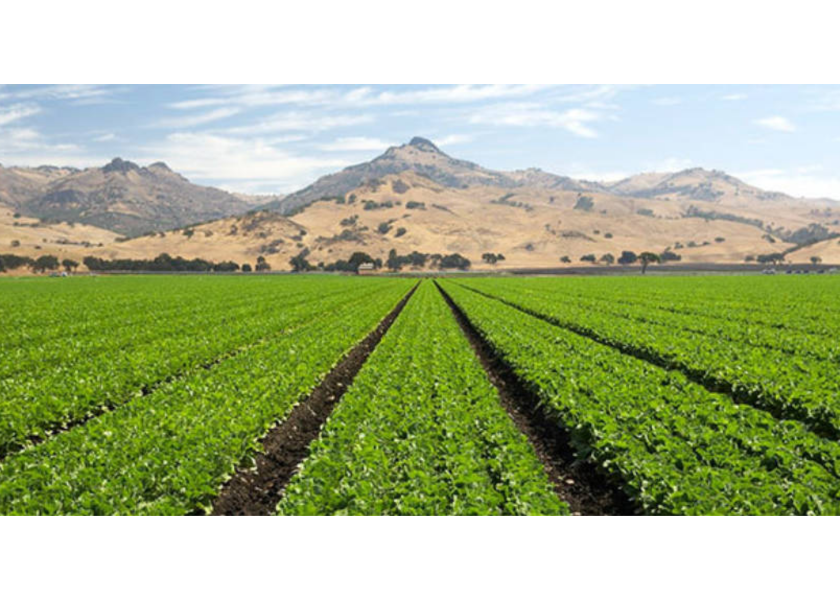California LGMA votes to mandate risk-based pre-harvest testing

The California Leafy Greens Marketing Agreement board has voted to mandate pre-harvest testing for leafy greens grown in fields where elevated risk factors are present.
In particular, the LGMA food safety program will now require members to assess each of their fields to determine if certain risks such as proximity to animal operations exist, according to a news release. For fields that meet these criteria, LGMA members will be required to collect product samples and test them to determine if pathogens are present.
“The board’s decision was an important step in advancing the safety of lettuce and leafy greens,” Tim York, CEO of the LGMA, said in the release.
“New testing protocols are predicted to provide a 95% chance of finding a pathogen in the field, even if only 1% of the crop is contaminated.”
York said the step went beyond LGMA’s action in April, when the group approved guidance that suggested that growers conduct risk assessments and then follow pre-harvest guidelines if there was elevated risk.
“That was only guidance, and we felt that we needed to put some teeth into it and be able to audit against that metric, so that we can say confidently to buyers and regulators, in particular, that we have these processes in place for LGMA and you can be very assured that these practices will take place and that we’ll be auditing against those.”
Next steps
With this action, several steps are now set in motion to make risk-based pre-harvest testing officially part of the LGMA’s government audits, according to the release. Updates are now being finalized to the LGMA Food Safety Practices, or metrics. The updates will also include the requirement that growers perform what’s called a “root cause analysis” if any test comes back positive for E. coli or salmonella.
Working in conjunction with food safety researcher Trevor Suslow and Western Growers, expanded pre-harvest product sampling and testing protocols are currently being finalized to provide the industry with a standardized methodology, according to the release. The new protocols for fields with elevated risk call for collecting 60 samples totaling a minimum of 1,500 grams per acre. Testing must be done 4 to 7 days prior to harvest, according to the release.
“These new testing protocols, coupled with a concerted effort to gather information on how the field was contaminated, will help us find solutions to prevent future outbreaks,” York said in the release.
Reaction
“This was absolutely the right thing for the LGMA and for consumers,” John D’Arrigo, president and CEO of Salinas, Calif.-based D’Arrigo Bros. and member of the LGMA board, said in the release.
“This action addresses demands of government agencies and our retail and foodservice customers who are looking for us to provide additional safety assurances that protect the public. That is exactly what this pre-harvest testing requirement will do,” he said.
York said that once the LGMA board adopts the new food safety requirements and finalizes testing protocols, which is expected in August, members will officially be required to comply. LGMA government audits will begin verifying these practices in December.
“The LGMA board understands the rapid development of these new requirements comes with a burden on individual companies to implement the changes,” York said in the release.
“We will be offering numerous resources and training to assist members in adopting these practices on their farms. We thank all our members for their continued commitment to improving the safety of lettuce and leafy greens.”
FDA sampling
Meanwhile, the U.S. Food and Drug Administration is collecting and testing samples of lettuce grown in California’s Salinas Valley from local commercial coolers from May through November.
The agency said it will test the samples for Shiga toxin-producing E. coli (STEC), including E. coli O157:H7, and salmonella species as part of ongoing surveillance efforts following reoccurring outbreaks linked to this region, including most recently in the fall of 2020.
York said the LGMA action could reduce the need for such sampling by the FDA.
“There’s hope, quite frankly, that regulators, both federal and state and Canadian regulators, should be able to look at what we’re putting in place and consider that as an alternative to some of the requirements that they put in place,” York said.
“We’re hoping the outcome is that they will look at the industry as being proactive in addressing these concerns and the steps we’re taking would be adequate.”







